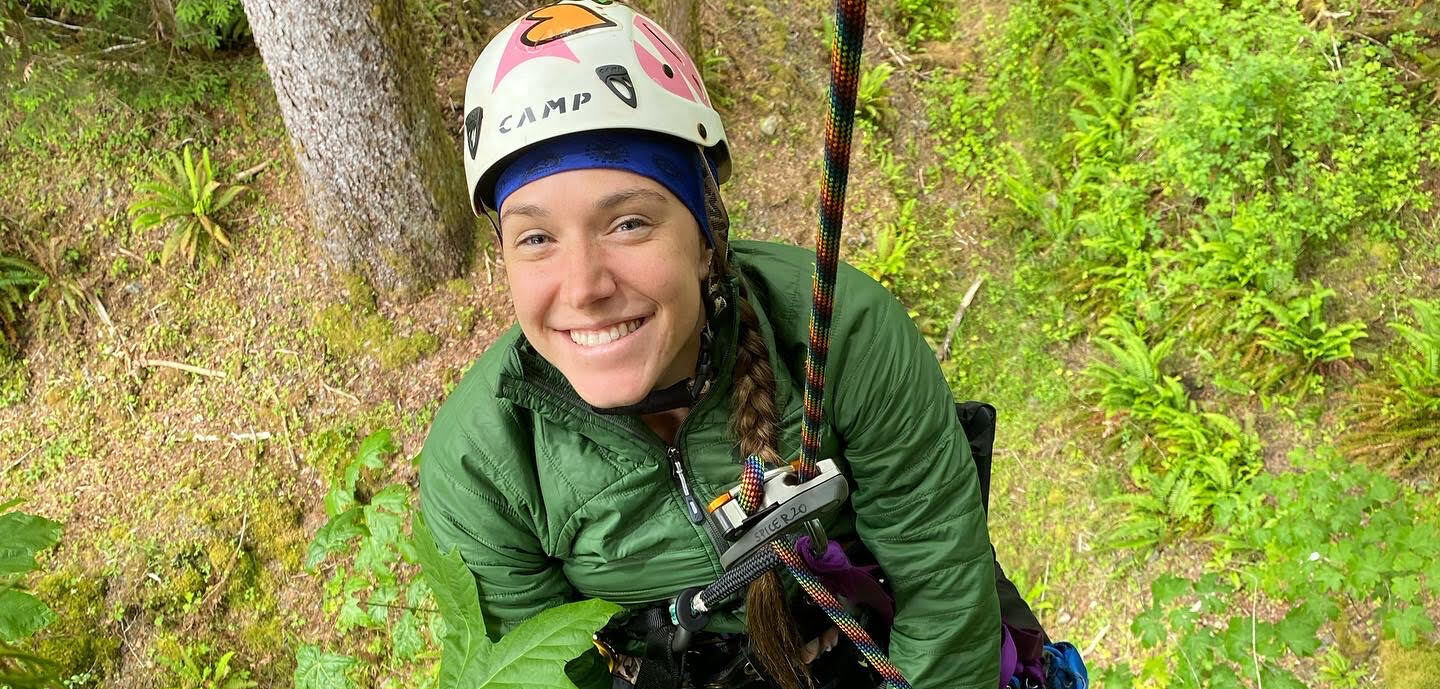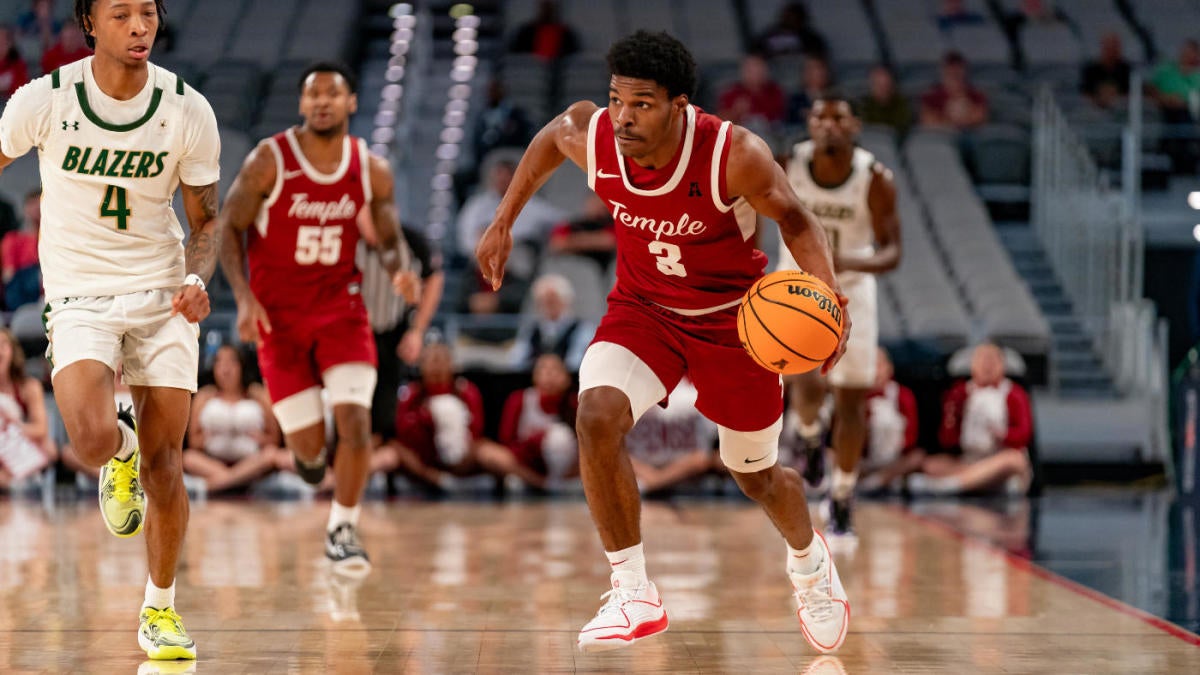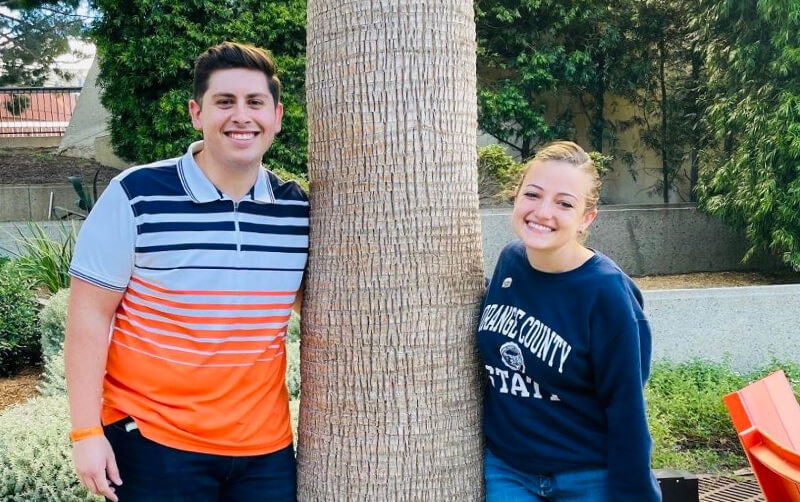Routine ruled nine months of Michelle Spicer’s life during the third year of her doctoral studies.
She started each morning of every day in a forest.
Whether stationed in Washington, Western Pennsylvania or Panama, Spicer would wake at 6 a.m., dress in waterproof clothing, slide into rubber boots and begin her steep and muddy trek to the plot of trees she would be working on for the day.
For Spicer, fieldwork was both exhausting and rewarding.
With a 50- to 75-pound bag of not-so-dry climbing gear hung from her back, the forests could be as much as an hour’s hike away.
Once there, it was time to collect data.
Spicer would measure the length of a leaf or a branch, identify plants, take photos and enter the data into a waterproof tablet.
After a full day at the field site, Spicer would pack up and begin the trek back to base.
Clean the equipment. Back up the data. Dinner. Bed. Repeat.
For Spicer, this fieldwork experience was the first time she considered a career in academia.
“It struck me what a cool job (academia) was,” Spicer said. “It really hadn’t clicked until that point that my job could be working on these curiosity-driven questions and then writing about and sharing it the results.”
Now a doctor of biological sciences specializing in ecology, Spicer joined the Lehigh faculty in 2023 as an assistant professor in the Earth and Environmental Sciences Department.
For Spicer, it’s a homecoming. She earned her bachelor of science degree through Lehigh’s IDEAS program in 2012, with concentrations in chemical engineering and environmental sustainability. She also earned her master’s in earth and environmental sciences at Lehigh in 2014.
Now, more than a decade after arriving at Lehigh for her undergraduate degree, Spicer has gained extensive experience in mentoring and fieldwork, which she is excited to integrate into her professorship at the university.
Mentoring is Spicer’s favorite part of being a professor.
The Spicer Lab is composed of Spicer as the principal investigator and her mentees: a doctoral student, a master’s student and a lab technician.
Spicer also regularly mentors undergraduate students on research projects in her lab.
Vanessa Dadeboe, ’25G, is receiving her master’s in earth and environmental sciences and works with Spicer in her community lab.
During her first semester at Lehigh, as an international student, Dadeboe said she struggled with transitioning into a new environment, so she turned to Spicer for advice.
“One thing (Spicer) said that has really left an impression on me was that it’s important to make good grades, but the reason why you’re here is to pick up important skills, so do your best to get good grades, but more importantly, make sure you’re getting those skills,” Dadeboe said. “That has been encouraging to me.”
In academia, Dadeboe said toxic relationships between professors and students can be prevalent, but working with Spicer has been a positive experience.
She said Spicer prioritizes her students and cares about them as people. It’s never just about the research.
Laurel Humphreys began working on her undergraduate thesis with Spicer at Yale University in 2022. Since Spicer arrived at Lehigh, Humphreys has worked as a lab technician for her.
Spicer held space for Humphreys to create her self-directed project within the structure of Spicer’s previously established research. This allowed Humphreys to feel like she was bringing something new to the table and providing an integral part of the research process.
“She is an incredibly mindful and intentional mentor who works very hard to balance her own research needs and goals with the interests and goals of her students,” Humphreys said.
As her lab technician, Humphreys has worked closely with Spicer at field sites in Washington and Panama.
During Humphreys’ first field season, Spicer sat down with her and handed her a worksheet full of questions: What do you expect from this field season? What do you want out of this mentorship? What areas do you thrive in? Where do you struggle?
This was all so Spicer could better understand Humphreys and figure out how to be the best mentor for her in the field and the lab.
Humphreys said fieldwork is inherently more personal than most other kinds of work. It’s not just working together. It’s getting covered in bug bites together, deciding who will cook dinner that night, working and seeing each other at the sleepiest and most exhausting moments.
With so much fieldwork under her belt, Spicer understands the challenges and continuously checks in on her mentees to ensure they care for their health.
Spicer looks for health challenges and burnout, among other problems, in the field.
Spicer said being an ethical scientist is paramount to her research.
Extractive science — when scientists go to a field site they know nothing about, extract data and resources, and their research doesn’t benefit the people from the region — is commonplace in fieldwork, and Spicer said it’s something she tries to combat.
Spicer counters this in her field sites in Panama by working with Panamanian collaborators and students.
At the field sites, Spicer and her lab technician only speak Spanish. It’s not just for convenience, it’s a choice.
It’s about measurements, photos and data collection — all to preserve and protect the sites they work at.
There are clear benefits to gaining a holistic picture of the region, which Spicer impresses upon her mentees.
“I think that a picture of (Spicer) and her research is not complete without the understanding that she is very socially and politically minded in the way that she conducts her science,” Humphreys said. “I haven’t met another scientist who is so thorough about how social justice and the humanities impact the work they are doing with their hands and brains.”
Spicer constantly thinks and works toward breaking existing patterns of being a white American scientist researching in a tropical country like Panama.
And now, she is preparing to bring these skills and lessons from the field into the classroom.
This starts with developing new courses she hopes to begin offering soon, which include classes on regional biodiversity, forest ecology labs and an interdisciplinary Latin American sustainability course.
Spicer also hopes to continue to strengthen and grow her community ecology lab.
By further developing the lab culture, Spicer said she wants to ensure her students and mentees have the freedom to answer questions they are excited about in an inclusive environment.
One of my favorite parts of my experience as a new faculty member is mentoring,” Spicer said. “I’m basically helping the next generation of scientists to do things research-wise and help them develop skills to answer cool interesting unanswered questions about forest systems and ecology.”










